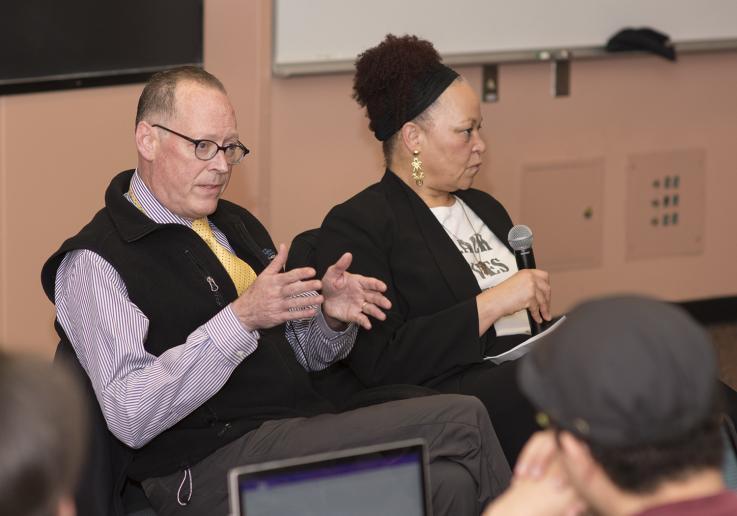
When Dr. Paul Farmer passed away in Rwanda on Monday, February 21, there was a collective gasp of disbelief across the global health world. Dr. Farmer was only 62 years old and still full of energy and purpose. Many in the DGH community and beyond at the UW knew him well and had experienced his legendary charisma and vision.
Dr. Farmer was a once-in-a-generation transformational figure, not only in global health but across the social sciences and international development. With his focus on social justice, social inequality, and racism in global health and healthcare, Dr. Farmer transformed our field, and he relentlessly challenged us to do more and to do it better. Drawing on liberation theology's "preferential option for the poor" that guided his work, he wrote, "Any serious examination of epidemic disease has always shown that microbes also make a preferential option for the poor. But medicine and its practitioners, even in public health, do so all too rarely."
He has been an inspiration to generations of global health workers, activists, physicians, and medical anthropologists. Over the last decades he made several visits to campus and always found time to meet and inspire our students, do guest appearances in classes, and connect with faculty. Dr. Farmer's last visit to UW was during Black History Month in 2018, when he did a Q&A with our MPH in Global Health students. (The discussion was mediated by Dr. Rachel Chapman, an associate professor of anthropology and an adjunct associate professor of global health.)
To honor Dr. Farmer, we would like to share some of his most recent powerful words about the COVID-19 pandemic and vaccine inequity, typical of his passionate and poignant style. The following quotation is taken from a 2021 commentary published in OpenGlobalRights entitled "Against nihilism: transformative human rights praxis for the future of global health" and co-authored with Alicia Yamin.
"[I]f we recognize that global health has colonial origins, we must also acknowledge that it remains deeply embedded in, and shaped by, interlocking systems of power—patriarchy, racism, coloniality, neoliberalism, and exploitative commerce, among others. These systems are reflected in laws and policies, as well as in research, programming, and clinical practices, and they breed a pervasive nihilism about our capacity to effect rapid and meaningful change. Even now, well over a year since COVID-19 was declared a global pandemic, the greatest obstacles to health justice stem not from a novel pathogen, but from the pathogenic forces of apathy, cynicism, marginalization, and historical amnesia that drive us to accept the suffering of the poor as inevitable misfortunes to be endured, as opposed to injustices to be cured...Today, COVID-19 reveals that we must do more than just build vertical programs to mitigate HIV or any other single condition. We must insist on robust health systems (public health and care) capable of attending to the complete burden of disease and of fulfilling their functions as core democratic institutions, including progressive public financing of health and social protection."
As usual, Dr. Farmer challenged us with a more ambitious vision for health justice. This vision and his wisdom, energy, and commitment can still inspire us as we seek to decolonize our own work and embrace anti-racist principles in our workplace and public health projects.
For further commentary and insight on Farmer's legacy, see these tributes from NPR, New York Times (Obituary), and New York Times (op-ed by Tracy Kidder).
James Pfeiffer, DGH Director, Diversity, Equity and Inclusion
Carey Farquhar, DGH Acting Chair
Susan Graham, DGH Associate Chair for Academic Programs
Dana Panteleeff, DGH Director of Finance and Administration
Judd Walson, DGH Vice Chair